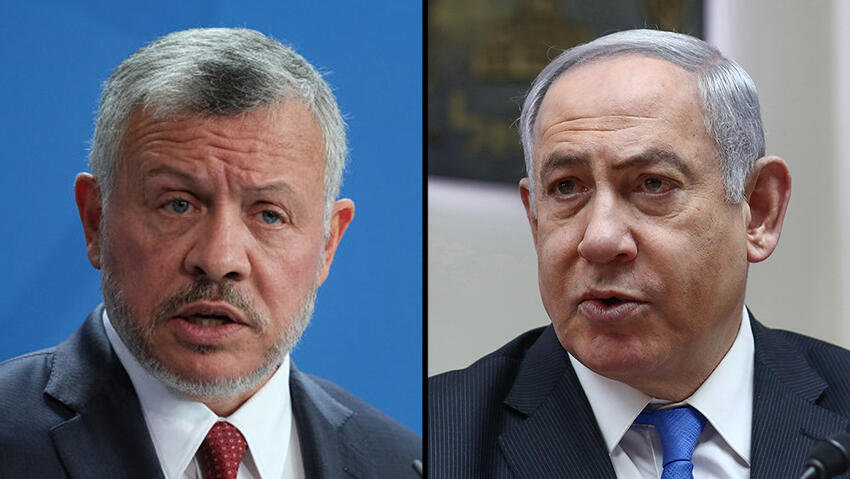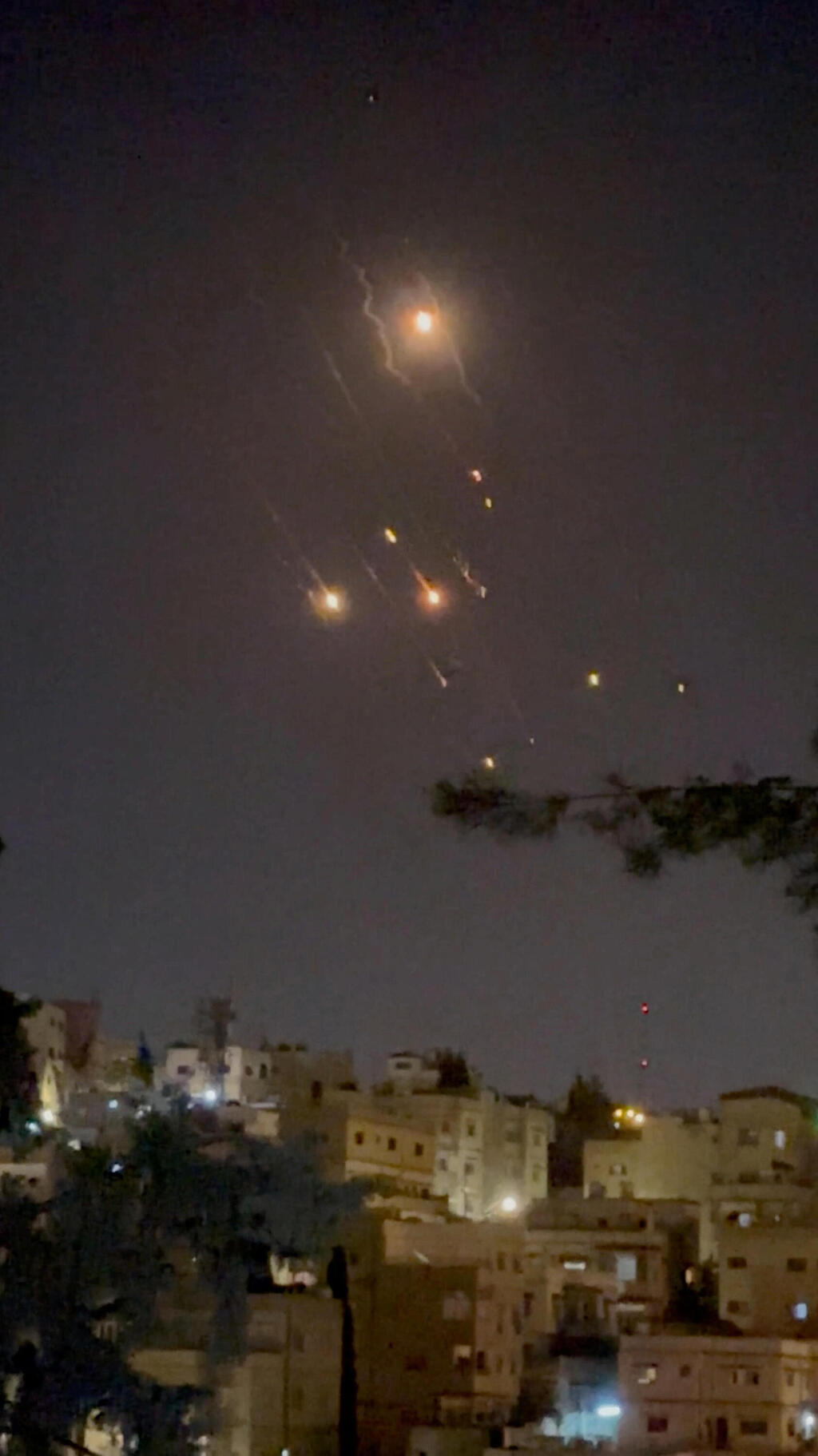Jordan’s King Abdullah II disappeared on Sunday. He wasn’t seen, his voice was not heard, and all of the military activity carried out by the Jordanian Air Force pilots seemed to have taken place without his involvement. However, the king, the supreme commander of Jordanian security and intelligence establishments, was acting behind the scenes.
It’s easy to guess that the images of Iranian drones and interceptor missiles flying over the Al-Aqsa Mosque in Jerusalem, which is under the responsibility of the Jordanian monarchy, shocked him. King Abdullah is responsible for choosing the Jerusalem Waqf to care for the holy complex, which determines its on-site protocols exclusively, and shares the responsibility with the Palestinian Authority and Israel for the area’s security.
Even before the Iranian attack overnight between Saturday and Sunday, and the passing of armed UAVs through Jordanian airspace, the king made it clear in discussions that he would not allow the Iranians to operate in Jordanian territory as they do in Iraq, Syria and Lebanon.
In interviews, the king said he was unsettled, to the say least, by the fact that Iran’s Islamic Revolutionary Guard Corps (IRCG) officers were operating Iraqi militias, their clients, against Jordan.
On Sunday, the close cooperation between Jordanian security forces and their Israeli counterparts was revealed in a single instance. The kingdom granted Israeli aircraft full operational freedom in Jordanian airspace, and they intercepted the Iranian drones. For a moment, it seemed that the overt and covert cooperation during former prime minister Yitzhak Rabin and King Hussein’s era was returning in the form of Abdullah II and Prime Minister Benjamin Netanyahu.
According to reports, Israeli Air Force fighter jets and sophisticated electronic equipment targeted the Iranian UAVs in Jordanian airspace. Meanwhile, Jordanian aircraft flew from their bases to intercept the Iranian drones making their way to Israeli territory. The limited information demonstrates most of the attacks did not take place in Israeli territory.
It's impossible to "blame" King Abdullah II for a sudden "infatuation" with Netanyahu. Jordanian government spokesperson, Muhannad Mubaydeen, told local media, "Jordan's actions are a result of exceptional circumstances."
In consultations held by senior officials on Saturday night, it was noted that Sunni Muslim Jordan had decided to take action against Shiite Muslim Iran in order to avoid becoming a puppet state like Iraq and to prevent the IRCG from roaming freely in its territory as it does in Syria and Lebanon, or engage in operations that could harm Gazans.
There’s no dispute that Jordan's significant alignment with Israel against Iran is considered a major diplomatic surprise. Despite this, it’s hard to believe a serious change in relations between the two countries will take place. The gaps are still large, and relations are tense.
Jordan hopes that Israel, being aware of its difficult economic situation, will continue to supply it with water for consumption and agriculture, and won’t prevent the passage of trucks carrying fruits and vegetables from the east to the West Bank. However, it seems the countries’ cooperation in the attack won’t succeed in bridging deep-seated disagreements between Jerusalem and Amman.





